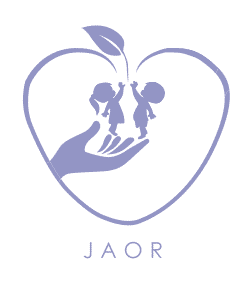Grief is the reaction to loss; it is also the response to hearing troubling news about a loved one. It can be a very consuming emotion, preventing one from carrying on with their day-to-day tasks. It can also leave a person feeling numb and desensitized to everything going on around them.
The effects of grief may also take a physical toll on the body. One may lose their appetite, be unable to sleep, and may even be unable to think straight. All of these are natural responses to hearing grave news or losing a loved one.
Grief is often associated with losing a loved one- and that is usually the most painful form of grief. However, grief can be felt from different experiences. Examples of these experiences include:
- Divorce or relationship breakup,
- Loss of health,
- Losing a job,
- Loss of financial stability,
- A miscarriage,
- Retirement,
- Death of a pet,
- Loss of a cherished dream,
- A loved one’s serious illness,
- Loss of a friendship,
- Loss of safety after a trauma,
- Selling the family home.
There is no measurable standard of how to deal with or experience grief. Every person deals with grief differently. How a person grieves is determined by a lot of factors; religious and cultural, their way of coping with things, and how significant or severe the loss was to them. It is important to realize that the grieving process has no specific timeline either. Some may deal with grief for a few weeks and some may still grieve after years.
According to the Elisabeth Kübler-Ross, there are five stages of grief that are commonly experienced by people. These stages are: Denial, Anger, Bargaining, Depression, and Acceptance.
Denial is the stage where one usually hasn’t accepted the loss and tries to avoid confronting their emotions towards the loss.
Anger is the process of expressing your frustration towards the loss and questioning why it has happened to you, people tend to take out their emotions on their friends and family in this stage.
During the bargaining stage you are so desperate to get your life back to how it was before the grief event, you are willing to make a major life change in an attempt toward normality. A common emotion in this stage is guilt.
Depression is a commonly accepted form of grief. In fact, most people associate depression immediately with grief. It represents the emptiness we feel when we are living in reality and realize the person or situation is gone or over.
Lastly, Acceptance is the stage where one realizes that the grief event has happened, but they will be okay. In this stage, the person’s emotions have stabilized, and they have made peace with the situation. The person has or is still learning to adjust their life to normality.
Grief, unfortunately, is an inevitable pain. Fortunately, there are ways to deal with grief, pick up the pieces, and move on with life. A few ways to cope with grief include:
- Acknowledge your pain.
- Accept that grief can trigger many different and unexpected emotions.
- Understand that your grieving process will be unique to you.
- Seek out face-to-face support from people who care about you.
- Support yourself emotionally by taking care of yourself physically.
- Recognize the difference between grief and depression
– Nura R. Mein
